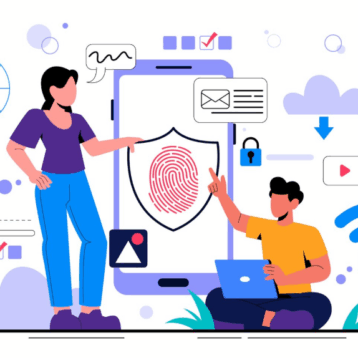
The intersection of technology and legal education is transforming how future lawyers prepare for their careers. From virtual reality mock trials to AI-powered research tools, innovative technologies are enhancing learning experiences and providing practical skills that are essential for modern law practice.
This article explores various cutting-edge advancements shaping legal education, highlighting their benefits and impact on students’ readiness for the evolving demands of the legal profession.
Interactive eLearning Platforms: Engaging Students Beyond Textbooks
Interactive eLearning platforms breathe life into legal education, pushing students beyond traditional textbooks. These platforms use videos, quizzes, and interactive case studies to create a dynamic learning environment. Law students preparing for exams benefit significantly from these methods.
Platforms also provide specialized modules for California bar preparation (and other state bar exams), incorporating state-specific laws and practice questions tailored to the exam’s format. This level of customization helps streamline studying and keeps learners engaged throughout their journey toward becoming competent legal professionals in an ever-evolving landscape.
By leveraging technology effectively, these tools offer an engaging way to grasp complex legal concepts while staying current with the latest industry practices.
AI-Powered Legal Research Tools: Revolutionizing Case Analysis
AI-powered legal research tools transform how law students and professionals analyze cases. These advanced systems quickly sift through vast amounts of legal texts, precedents, and case laws to find relevant information in seconds. By using natural language processing, they understand context and deliver precise results.
Students benefit from these tools by gaining more time to focus on critical thinking and application rather than spending hours manually searching through databases. This technological edge also aids in preparing for tasks like moot court competitions or drafting briefs for internships.
As artificial intelligence continues to evolve, it will further enhance the efficiency and accuracy of legal research in educational settings, preparing future lawyers for a tech-savvy practice environment.
Virtual Reality in Mock Trials: Immersive Learning Experiences
Virtual reality (VR) is changing the landscape of legal education by offering immersive mock trial experiences. With VR, students can step into realistic courtroom environments, practicing their advocacy skills without leaving their study spaces. This tech creates a vivid simulation of court proceedings, complete with judges, juries, and opposing counsel.
These simulated trials allow students to hone their argumentation and witness examination techniques in a low-risk setting. The sensory-rich experience helps them better understand courtroom dynamics and build confidence for real-life appearances.
As VR technology advances, its role in legal training will expand further, making it an invaluable tool for developing practical skills that traditional classroom settings can’t fully replicate.
Data Visualization Tools for Understanding Complex Case Law
Data visualization tools make understanding complex case law more accessible and engaging for students. These tools turn intricate legal data into intuitive charts, graphs, and maps, highlighting connections between cases and statutes. For instance, they can illustrate the evolution of legal precedents or show patterns in judicial decisions.
Students use these visual aids to grasp complex concepts quickly and retain information more effectively. Professors integrate these visuals into lectures, providing a clearer picture of how various laws interconnect. This method also helps during study sessions by making dense materials more digestible.
Chatbots for Instant Legal Guidance: 24/7 Student Support
Chatbots are revolutionizing student support in legal education by offering instant guidance around the clock. These AI-driven assistants provide quick answers to questions about coursework, research, and even career advice.
Imagine preparing for a late-night exam and needing clarification on a legal concept—just ask the chatbot!
Beyond answering queries, chatbots can also guide students through resources like databases or suggest relevant case studies. They offer personalized help tailored to each student’s learning pace and needs. This continuous support ensures that no question goes unanswered, helping students stay on track with their studies anytime they need it.
As chatbot technology evolves, its role in enhancing educational experiences will only grow stronger.
Final Thoughts
As technology continues to evolve, its integration into legal education will only deepen. Tools like VR, AI research assistants, and chatbots are already reshaping how students learn and practice law. By embracing these innovations, future lawyers gain essential skills and insights needed for a tech-savvy legal landscape.
The future of law practice starts with today’s advancements.










